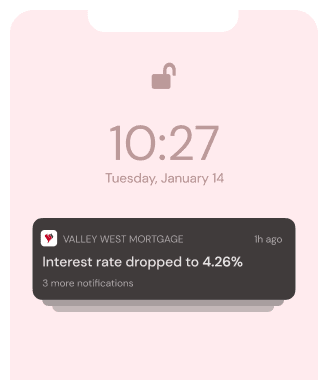FHA BRINGS IN THE NEW YEAR WITH MIP CUTS FOR BORROWERS!
FHA BRINGS IN THE NEW YEAR WITH MIP CUTS FOR BORROWERS!
The Federal Housing Administration, also known as the FHA, has decided to bless borrowers this year by cutting mortgage insurance premiums. Who is the Federal Housing Administration? The Federal Housing Administration, simply called the FHA, is the government body that sets standards for the processing of mortgage loans. Most notably, the FHA insures loans made by banks that have been FHA approved. The Mutual Mortgage Insurance Fund created and backed by the FHA has grown exponentially in the past four years under the Obama Administration. This means that the FHA now has the flex room it needs to provide an opportunity for savings for deserving and responsible borrowers.
What does cutting Mortgage Insurance Premiums mean for our borrowers?
The cut in MIP (Mortgage Insurance Premiums) will apply to FHA loans with a closing or disbursement date on or after January 27, 2017. The FHA cut in Mortgage Insurance Premiums is going to do wonders for the borrowers who have to deal with this new environment of rising interest rates. The FHA is predicting that homeowners will be able to save an average of $500 per year. The cut in Mortgage Insurance Premiums means that the cost of housing will decrease and the opportunity for mortgage credit availability will meaningfully expand. In a nutshell, more borrowers will have the opportunity to take out FHA loans because the cost of obtaining an FHA loan is being reduced.
What does cutting Mortgage Insurance Premiums mean for Valley West Mortgage?
We love originating loans for our borrowers at Valley West Mortgage. We (as your lender) bear risk every time we lend money to homeowners. To offset that risk, borrowers pay a Mortgage Insurance Premium at closing as well as an annual mortgage insurance premium that is a small percentage of the loan amount. That premium paid by the borrower then goes toward the Mutual Mortgage Insurance Fund, an account that will pay back the lender if the mortgager falls on hard times and defaults on their loan. Mortgage Insurance Premiums being cut by the FHA means that we will be able to originate even more FHA loans for our borrowers because the required premium at closing will be of a smaller amount than it has been in the past.
Let’s Recap
The Federal Housing Administration or FHA, charges a small percentage of your loan amount to insure your loan against a default. This small percentage that is paid once at closing, and once annually is called your Mortgage Insurance Premium or MIP. The MIP is a part of the cost of your loan. When the cost of the mortgage insurance premium is cut, it allows more borrowers to meet the debt to income ratio that is required to take out an FHA loan. Borrowers that may not have been eligible to meet the standards before now have a chance to enter into the homeowners world. Lenders for whom business may have been slow as a result of rising interest rates will now be happily overflowed with business from borrowers who are looking to take advantage of this remarkable opportunity.
When doing your research, always use great sources! Check out the sources for this article below.
http://www.housingwire.com/articles/38905-housing-industry-welcomes-fha-mortgage-insurance-premium-cut
https://portal.hud.gov/hudportal/HUD?src=/program_offices/housing/fhahistory
http://www.investopedia.com/terms/m/mutual-mortgage-insurance-fund.asp
http://www.housingwire.com/articles/38902-fha-cuts-mortgage-insurance-premiums-again
- WHITNEY RUSH, VALLEY WEST MORTGAGE
